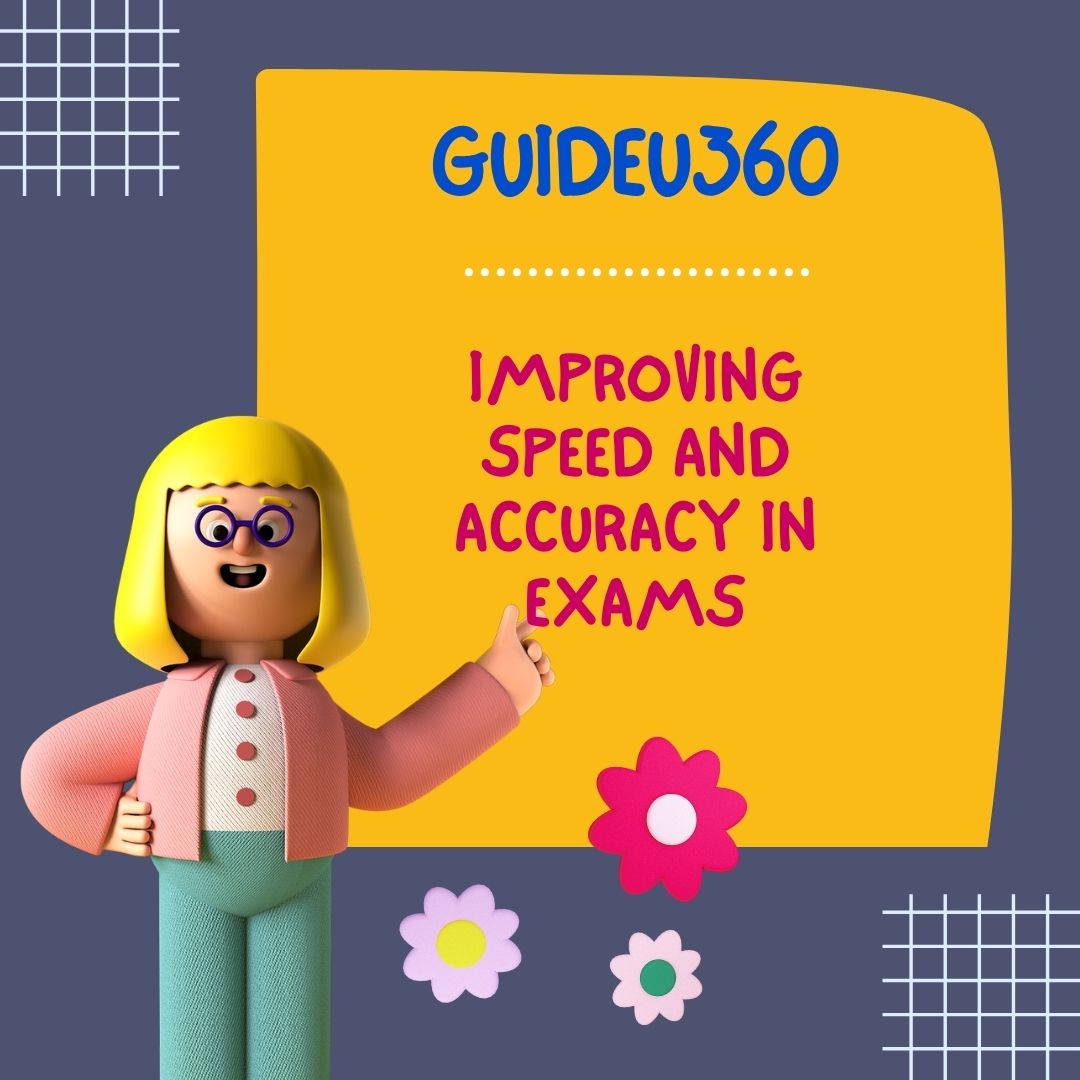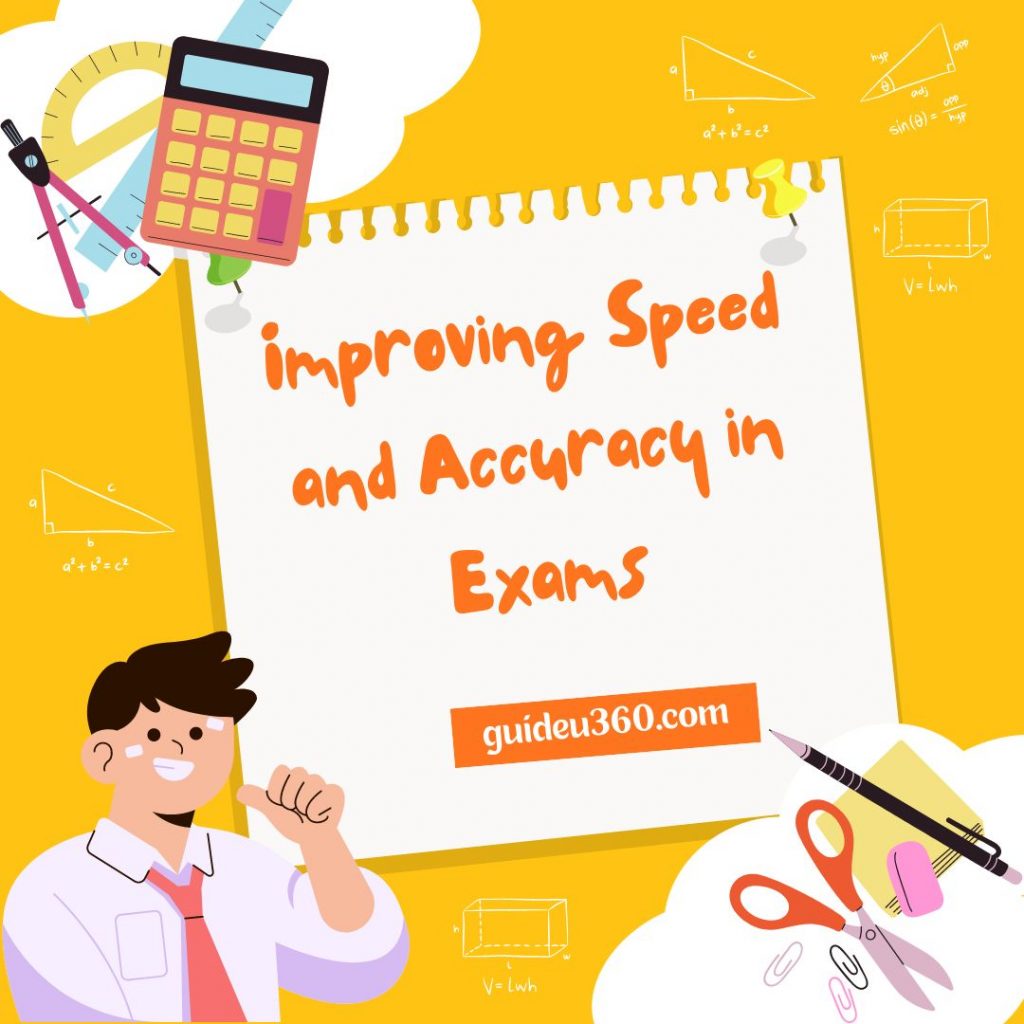1. Practice with Timed Mock Tests
One of the best ways to improve your speed and accuracy is by simulating exam conditions. Regularly take timed mock tests to get used to the pressure of the clock ticking down.
- Set a Timer: Use a timer to mimic the exact duration of your actual exam.
- Review Your Performance: Analyze which sections took the longest and where mistakes were made.
- Focus on Weak Areas: Dedicate extra time to practicing the topics or question types where you struggle.
Why It Works: Timed practice helps you develop a sense of time management, allowing you to gauge how long you can spend on each question.

2. Master the Art of Skimming and Scanning
Reading quickly and efficiently is crucial for exams, especially for sections like reading comprehension. Skimming and scanning are two techniques that can save valuable time.
- Skimming: Quickly read through the passage to get the gist of the content.
- Scanning: Look for specific keywords or phrases that are directly related to the questions.
Why It Works: These techniques help you identify important information without getting bogged down by unnecessary details, increasing both speed and accuracy.
3. Use Shortcuts and Techniques for Specific Question Types
Different exams have different types of questions, such as multiple-choice, true/false, or essay questions. Learning specific strategies for each type can save time.
- Multiple-Choice: Eliminate clearly wrong answers first to narrow down your choices.
- True/False: Pay attention to qualifiers like “always,” “never,” or “sometimes,” which can significantly impact the truth of the statement.
- Essay Questions: Plan your answer before you start writing to ensure a clear and concise response.
Why It Works: Tailoring your approach to the question type helps you work more efficiently and reduces the chances of making mistakes.
Effective Note Making Method
4. Stay Calm and Focused
Panic and stress can slow you down and lead to errors. Developing mental strategies to stay calm during exams can help you maintain both speed and accuracy.
- Deep Breathing: Practice deep breathing exercises to calm your nerves before and during the exam.
- Positive Affirmations: Use positive self-talk to boost your confidence and reduce anxiety.
- Stay Present: Focus on one question at a time, rather than worrying about the entire exam.
Why It Works: A calm and focused mind is better equipped to process information quickly and accurately, leading to improved performance.

5. Prioritize Easy Questions First
Tackling the easier questions first can boost your confidence and save time for more challenging ones later.
- Identify Low-Hanging Fruit: Quickly scan the exam for questions you know you can answer easily.
- Mark Tough Questions: Circle or mark difficult questions to return to them later, after you’ve answered the simpler ones.
- Review: If time allows, review your answers to catch any mistakes.
Why It Works: Answering easy questions first ensures that you secure those points and allows more time to focus on harder questions.
6. Improve Your Handwriting Speed
For exams that require written answers, handwriting speed can be just as important as your knowledge of the material.
- Practice Writing: Regularly practice writing by hand to build muscle memory and increase speed.
- Use Abbreviations: Develop a system of abbreviations for common words or phrases to save time.
- Optimize Your Pen Grip: Find a comfortable and efficient pen grip that allows for smooth, quick writing.
Why It Works: Faster handwriting allows you to focus more on the content of your answers rather than on physically writing them down.
7. Develop a Time Management Strategy
Having a plan for how to allocate your time during the exam can prevent you from getting stuck on difficult questions and running out of time.
- Divide Your Time: Allocate a specific amount of time to each section or question based on its difficulty and point value.
- Use a Watch: Keep an eye on the time and adjust your pace as needed.
- Build in Buffer Time: Leave a few minutes at the end to review your answers and make any necessary corrections.
Why It Works: Effective time management ensures that you have enough time to complete all parts of the exam without rushing or skipping questions.
Improving speed and accuracy in exams is not just about working harder but also about working smarter. By practicing timed tests, mastering question-specific techniques, and managing your time effectively, you can enhance your exam performance and achieve better results. Start incorporating these tips into your study routine today, and you’ll be well on your way to exam success.





